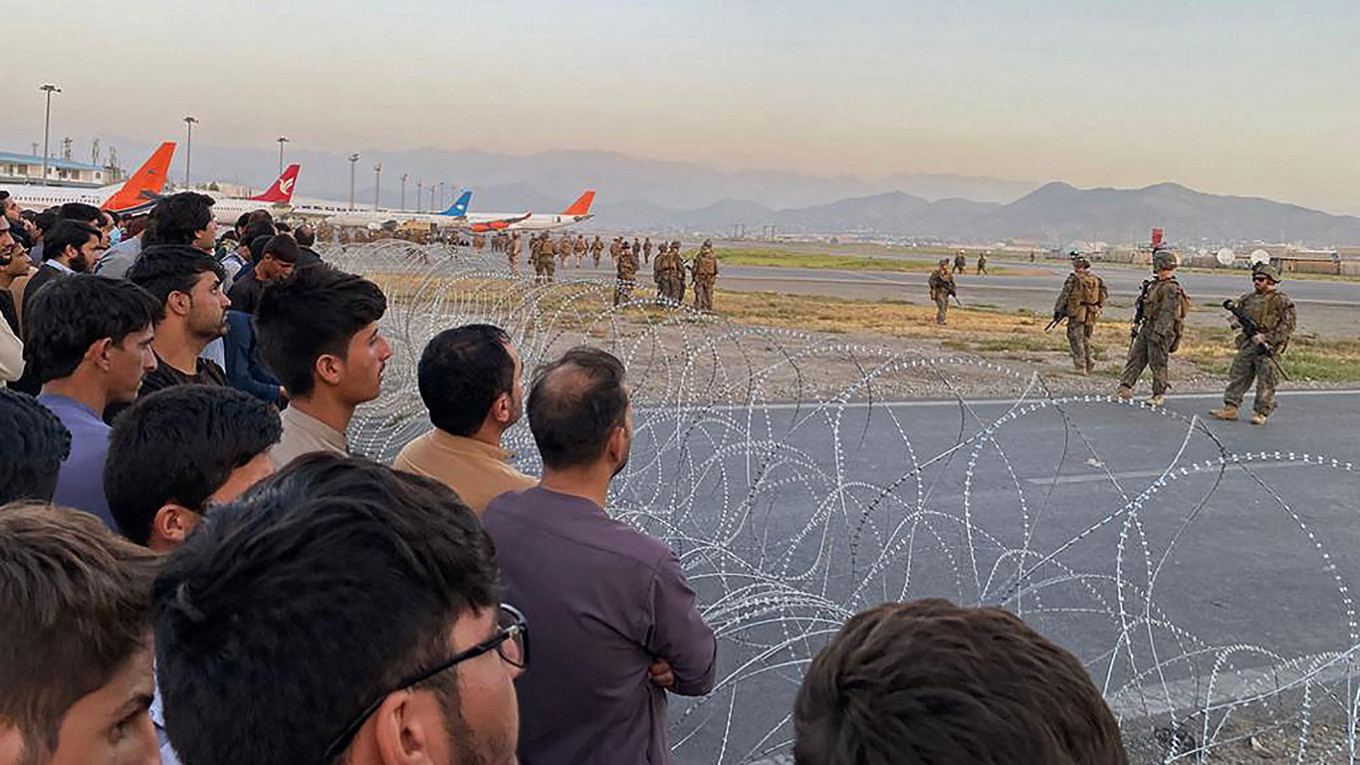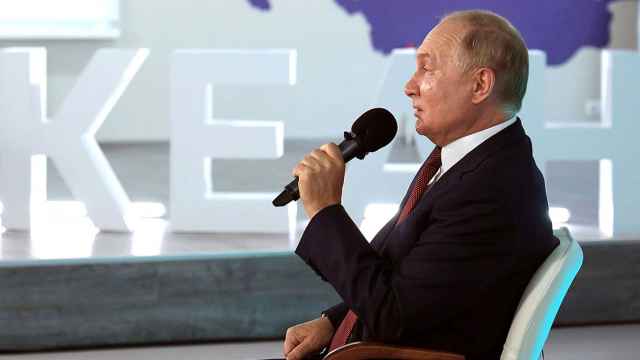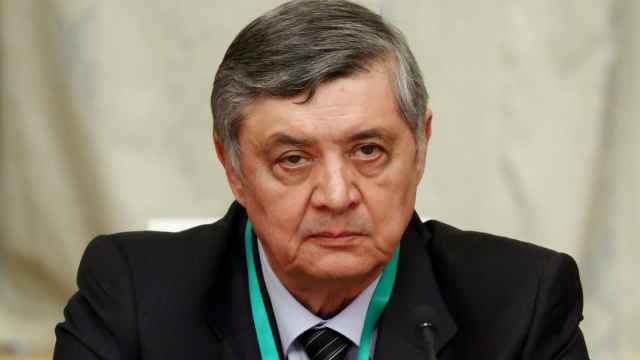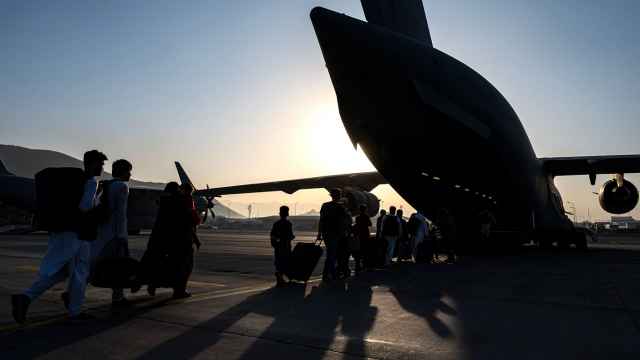The Taliban’s stunning victory after the U.S. withdrawal from Afghanistan has prompted impassioned commentary about the potential horrors of their coming rule. Should the United States have done something to save the government that it has already spent so much blood and treasure on sustaining?
The obvious answer is no.
U.S. President Joe Biden finds himself in a situation not unlike that faced by Mikhail Gorbachev in the late 1980s.
At the basis of both decisions — Biden’s and Gorbachev’s — there is a realization that, as Gorbachev put it in his time, Afghanistan was a “bleeding wound.” For the Americans — like for the Soviets in their time — Afghanistan was a place where one wins every single battle and still loses the war. Between them, the Soviet Union and the United States have now spent 30 years nation-building in Afghanistan. Both efforts proved miserable failures.
The similarity between the Soviet and U.S. wars in Afghanistan is further underscored by the fact that neither actually had to leave. The Soviet spending on the war was substantial — about $7.5 billion between 1984 and 1987 alone — but that number was but a drop in the bucket compared to the annual Soviet military budget of roughly $128 billion.
The U.S. spent a lot more on Afghanistan — over $2 trillion — but, like the Soviets, it could well have continued sending more good money after bad.
The Soviets suffered some 15,000 casualties, the U.S. military over 2,000. But neither the Soviet Union nor the United States experienced significant anti-war protests, and could have stayed the course for longer had there been a political will to do so.
Yet ultimately, the question of Afghanistan is not so much a financial as a moral question. Here is Gorbachev, talking about his dilemma in the Politburo in November 1986.
“What, are we going to sit there forever? Or should we be ending this war? Otherwise, we’ll disgrace ourselves in every respect … We have to get out of there now. We have to get out of there!”
After 20 years in Afghanistan, the Americans found themselves in a similar predicament. Were they going to sit there forever? If not, what difference would it make if they left now, or a year from now, or another twenty years down the road?
Washington would only spend further trillions and end up with more servicemen killed, all for no good reason because the bottom line is that for the U.S., just like for the Soviet Union, Afghanistan was a strategic distraction, as well as a moral stain.
The U.S. faces multiple challenges — ranging from Covid-19, to global warming, to ongoing competition with China — which are not at all helped by its involvement in a nation-building effort in the one place in the world where all nation-building efforts have consistently failed.
At least Biden acted decisively where Gorbachev, burdened by worries about Soviet credibility among its friends in the so called ‘third world’ took years to bail out.
As the Soviets prepared for their final pull-out from Afghanistan in 1989, the security situation there rapidly deteriorated. The mujahedeen threatened key regional routes, laying siege to Kandahar. Even the ostensibly liberal Soviet Foreign Minister Eduard Shevardnadze waivered, asking Gorbachev to leave 10-15 thousand Soviet troops in the country to help save the regime headed by the Soviet client Najibullah.
To Gorbachev’s credit, Shevardnadze was overruled. The Soviet leader understood that half-way measures won’t work: they would only prolong the suffering, not avert the inevitable. The Soviets withdrew finally and irretrievably in February 1989.
In the event, unlike President Ashraf Ghani, who readily fled the country, Najibullah managed to hold on to power for a bit longer than his probable life expectancy allowed in 1989. His regime fell in 1992, though he survived until 1996 when he was captured and killed by the Taliban. Could his government have been saved by maintaining a Soviet or Russian presence? For a time, yes, but at what cost? Najibullah’s own legitimacy was undermined by the fact that he was little more than a Soviet client. And without an internal claim to legitimacy, he could never have survived in the long term.
The rest of this story is well known. After the Soviet withdrawal, Afghanistan went through years of civil war, followed by the brutal reign of the Taliban, followed by 9/11 and the war on terror. One might ask: Could this have been averted if the Soviets had stayed? But a better question would be: Could this have been averted if the Soviets had never invaded in the first place? Drawing the right lessons is all about asking the right questions.
Today, 30 years after the fall of the Soviet client regime in Afghanistan, few miss the imperial misadventure with its appalling toll of death and destruction imposed on the long-suffering people of Afghanistan. Even many of those in Russia who eagerly point the finger of blame at Gorbachev for his real and imaginary mistakes would probably think twice before blaming him for losing Afghanistan.
Some 30 years later, it certainly seems that by withdrawing from Afghanistan Gorbachev made the right call, despite all the criticism that he faced at the time from some of his comrades-in-leadership. Who knows what pressures Biden is under. But he, too, made the right call, even if the execution was far less impressive than the orderly Soviet pullout. What is left in the wake of the U.S. withdrawal was never going to be pretty but nor did the Soviets leave a pretty sight. But this hardly changes the basic issue: Getting in was a mistake; getting out was the right thing to do.
Because in the end Afghanistan was never Moscow’s, or Washington’s, to win or lose.
A Message from The Moscow Times:
Dear readers,
We are facing unprecedented challenges. Russia's Prosecutor General's Office has designated The Moscow Times as an "undesirable" organization, criminalizing our work and putting our staff at risk of prosecution. This follows our earlier unjust labeling as a "foreign agent."
These actions are direct attempts to silence independent journalism in Russia. The authorities claim our work "discredits the decisions of the Russian leadership." We see things differently: we strive to provide accurate, unbiased reporting on Russia.
We, the journalists of The Moscow Times, refuse to be silenced. But to continue our work, we need your help.
Your support, no matter how small, makes a world of difference. If you can, please support us monthly starting from just $2. It's quick to set up, and every contribution makes a significant impact.
By supporting The Moscow Times, you're defending open, independent journalism in the face of repression. Thank you for standing with us.
Remind me later.








